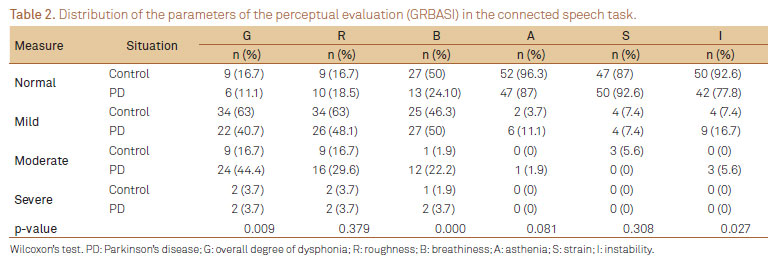OBJECTIVE: To compare voice and life quality of male patients with idiopathic Parkinson's disease, with individuals without disease (Control Group). METHODS: A cross-sectional study that evaluated the voice of individuals with Parkinson's disease, the group was composed of 27 subjects, aged from 39 to 79 years-old (average 59.96). The Control Group was matched on sex and age. Participants underwent voice recording. Perceptual evaluation was made using GRBASI scale, which considers G as the overall degree of dysphonia, R as roughness, B as breathiness, A as asthenia, S as strain and I as instability. The acoustic parameters analyzed were: fundamental frequency, jitter, shimmer, and harmonic to noise ratio (NHR). For vocal self-perception analysis, we used the Voice Related Quality of Life protocol. RESULTS: Fundamental frequency and jitter presented higher values in the Parkinson's group. NHR values were higher in the Control Group. Perceptual analysis showed a deviation ranging. The vocal disorder self-perception demonstrated a worse impact on quality of life. CONCLUSIONS: Individuals with Parkinson's disease have an altered voice quality and a negative impact on quality of life.
Parkinson disease; voice; quality of life; dysphonia




